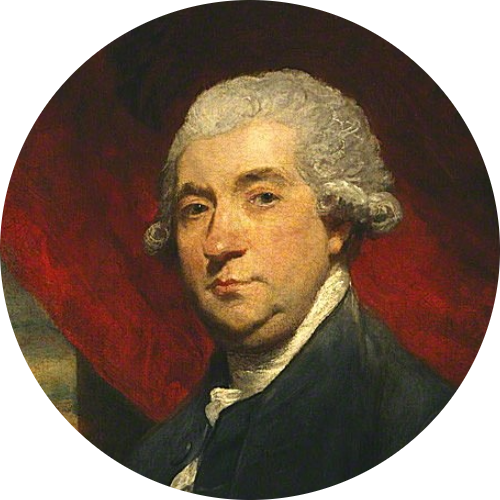Son of William Mitchell1 and Margaret Cunningham. Married at the age of 14 to his second cousin Barbara Mitchell (d. 1728).
Mitchell received his formal education at universities in Edinburgh, Leyden, Paris and Italy, before studying law at the Middle Temple in London in 1734.
In 1742, he was appointed Under-secretary of State for Scotland, a position he kept until 1746. He was elected Member of Parliament for Aberdeen (1747-1753) and for Elgin Boroughs (1754-1771). From 1756 until 1764 and again from 1766 until his death he served as British envoy to King Frederick II the Great of Prussia. It has been reported, that the Prussian King wept openly at Mitchell's funeral procession in 1771.2
Mitchell is somewhere described as "the noteworthy, not yet much noted, Sir Andrew Mitchell, by far the best Excellency England ever had in that Court [the court of Frederick the Great]; an Aberdeen Scotsman, creditable to his country, hardheaded, sagacious, sceptical of shows, but capable of recognising substances withal, and of standing loyal to them stubbornly if needful;"3
The poet James Thomson (1700-1748) was one of Mitchell's close friends, and Mitchell even served as co-executor of Thomson's estate following his death in 1748.4
Mitchell's estate in Scotland was Thainston House, which he had inherited from his father-in-law Thomas Mitchell.
Boswell first met Mitchell when he waited for him in Berlin on July 8, 1764. He described him as a very polite "knowing, amiable, easy man". A few days later, on July 14, Boswell dined with Mitchell and they met several times over the next few months.
On July 24 they had a "most agreeable conversation" about morality, and about the poet James Thomson, whose friend Mitchell had been in London. According to Boswell's journal, Mitchell said of Thomson that "[he] had more Genius than knowledge, that notwithstanding of his fine imitation of Ovid on the Pythagoraean system, he was an egregious gormandiser of Beefsteaks."
From a letter Boswell sent to Mitchell on August 28, 1764, it is clear that Mitchell was a friend (or at least a close acquaintance) of Boswell's father. Boswell used the letter to tell Mitchell about his wish to stay in Europe for another year, and to visit Rousseau and Voltaire, hoping that Mitchell would present the ideas favourably to Lord Auchinleck.
In 1850 was published Memoirs and Papers of Sir Andrew Mitchell, which is sometimes available via AbeBooks.
